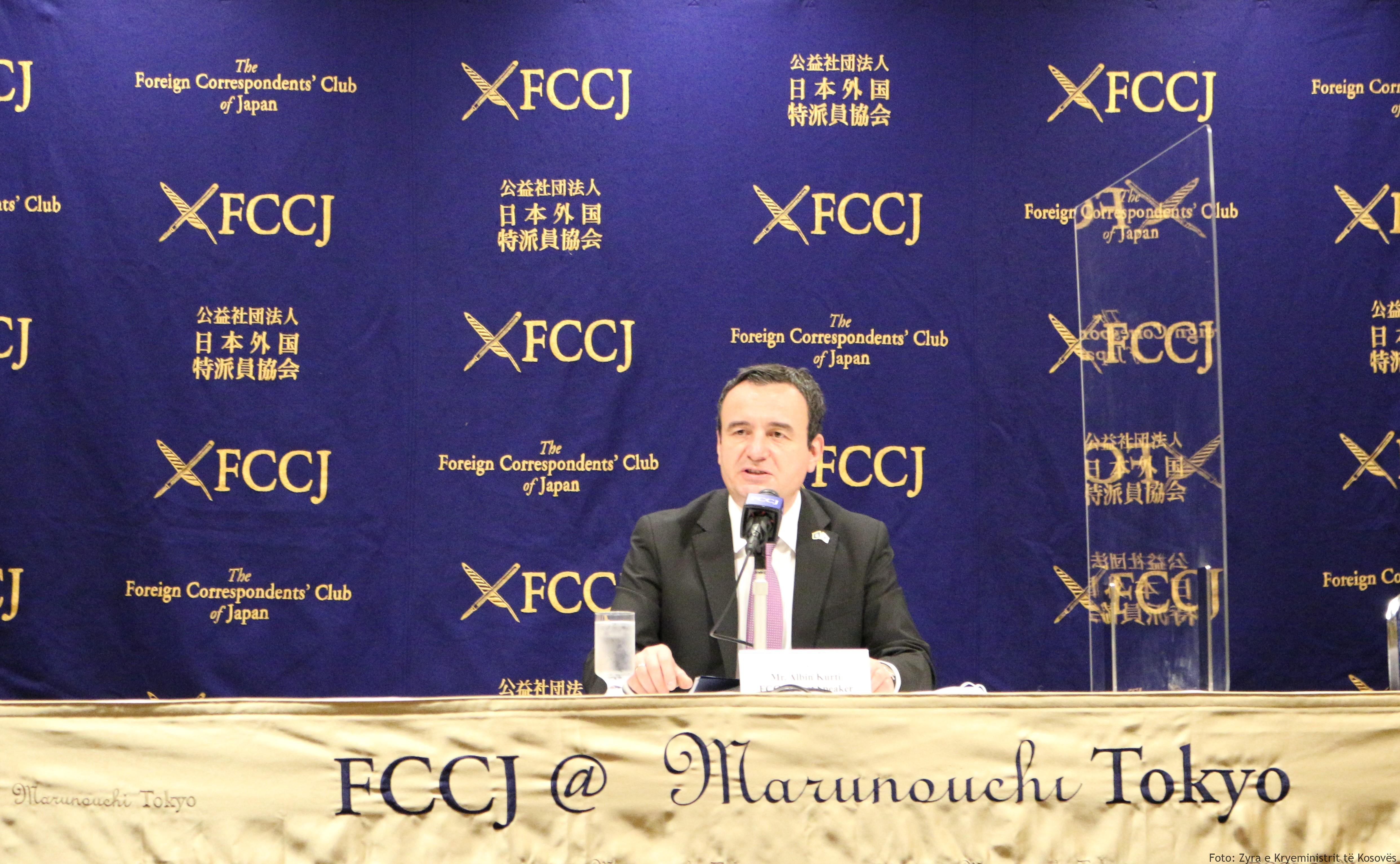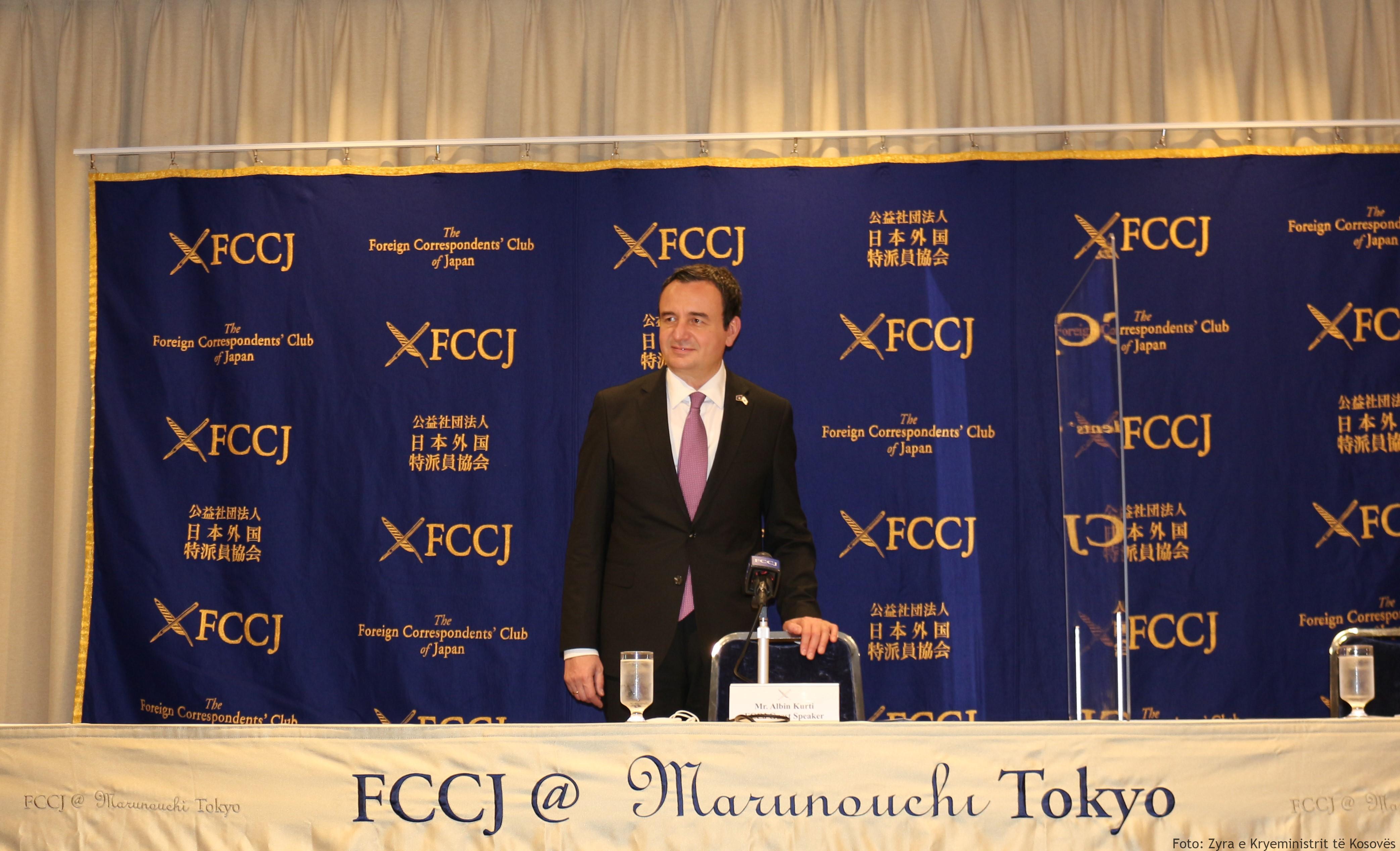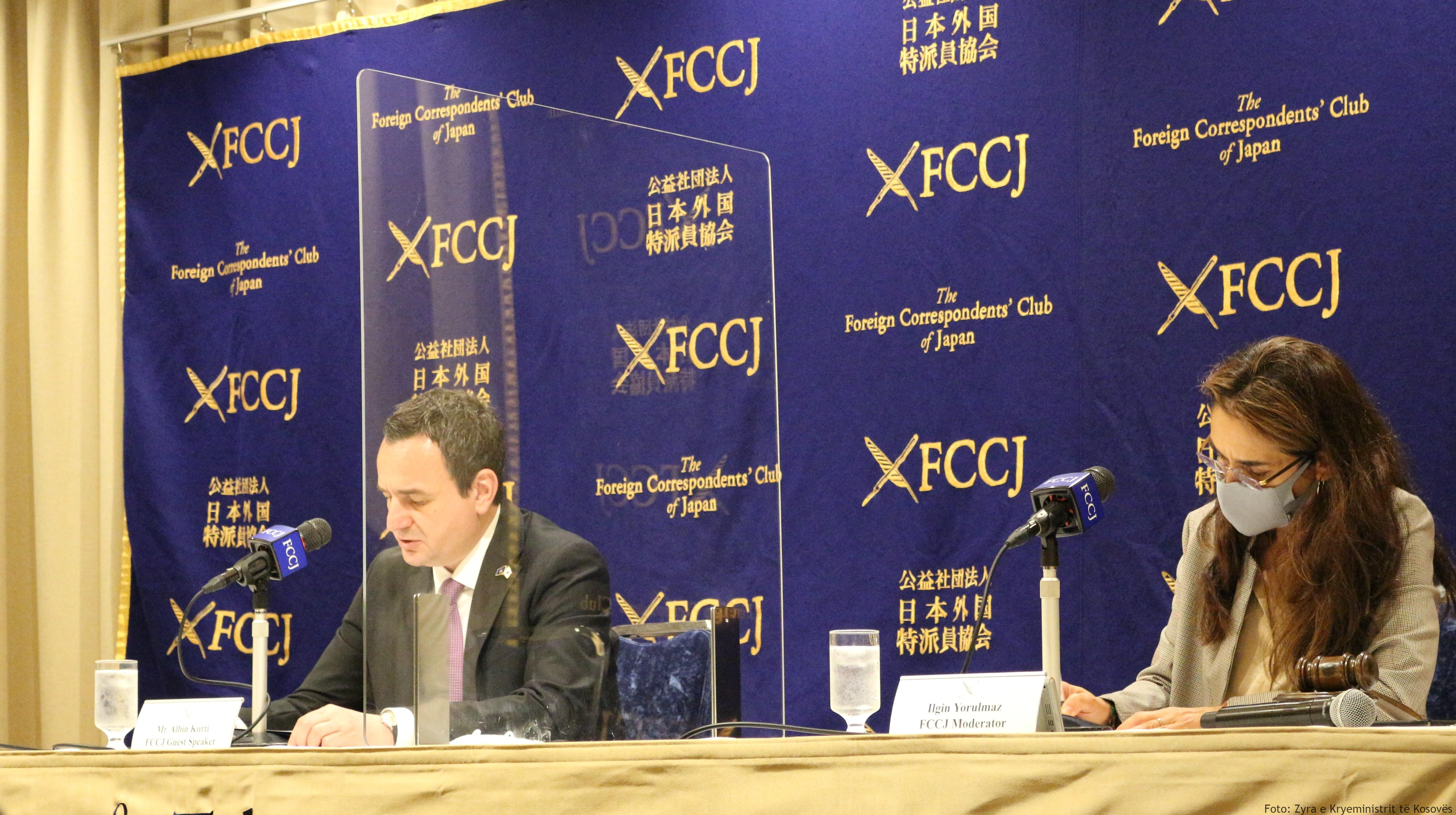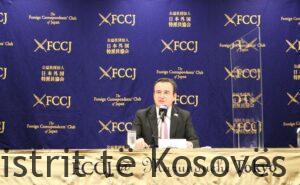On the second day of his stay in Japan, the Prime Minister of the Republic of Kosovo, Albin Kurti, held a press conference at the Foreign Correspondent’s Club of Japan.
Addressing the audience with an introductory speech, he first spoke about the figure, importance and role of the former Prime Minister of Japan, Shinzo Abe, who was given farewell yesterday. “Prime Minister Abe was a great politician and an even greater statesman: He was a leader who had a long-term and transformative vision of how his country could serve as a force for good in the world,” said the prime minister ,Kurti.
In his address, Prime Minister Kurti further presented the successes of Kosovo and the Government’s achievements. Kosovo is the most democratic country in the Western Balkans, Prime Minister Kurti said, among other things, as he listed Kosovo’s advancements in international reports such as Transparency International, Reporters without Borders and the World Justice Project.
He said that democratic progress and the rule of law during the year we are leaving behind have also been accompanied by economic development. “Last year, Kosovo recorded an economic growth of 10.7%, while this year for the first time, exports are expected to exceed the figure of 1 billion euros,” declared Prime Minister Kurti.
In addition to internal successes, Prime Minister Kurti also spoke about Kosovo’s engagement on the international level. With participation in Defender Europe 2021 along with 26 other countries with the immediate imposition of sanctions against Russia on the one hand, and the accommodation of over 1,800 Afghan refugees and 9 journalists from Ukraine on the other, Kosovo has proven to be a safe partner and loyal ally in the international arena, Prime Minister Kurti said.
Highlighting the close ties and continuous cooperation between Serbia and Russia, and the danger they pose to the region, Prime Minister Kurti said that Kosovo and Japan have a special bond as two countries that are committed to democratic government, but which also face autocratic regimes in the respective regions.





